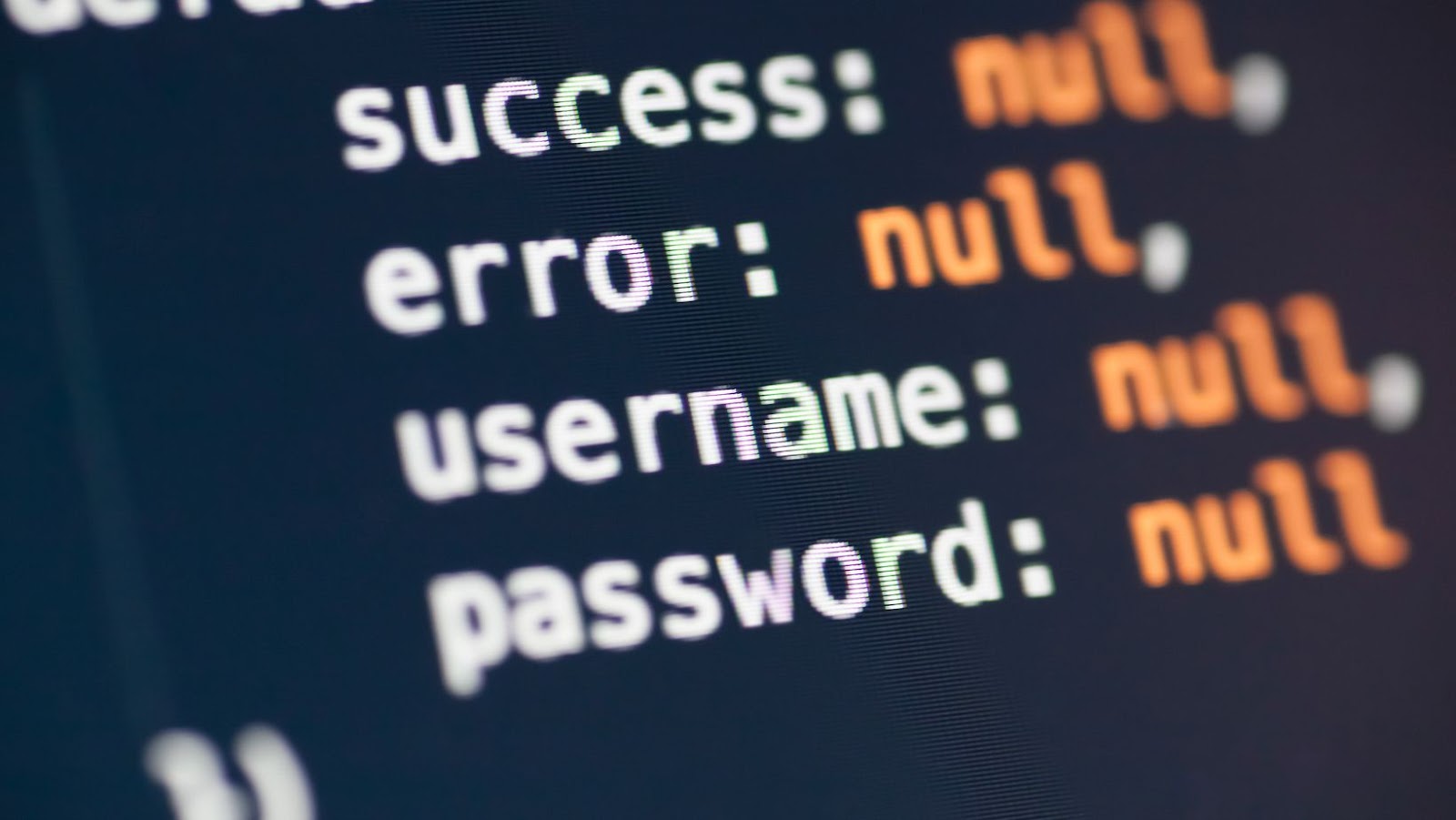Local variables are an essential part of coding and understanding them can help you write more efficient and readable code. In this article, we’ll look at some advanced techniques for using local variables. We’ll cover everything from declaring and initialising variables to using them with arrays and functions. Let’s get into the details.
Understanding the scope of local variables
Local variables in programming are restricted in scope to the function or block in which they are declared. Here are some advanced techniques for using local variables:
| 1. Declare variables at the smallest possible scope: | Declaring a local variable within the smallest possible scope can improve code efficiency and readability. |
| 2. Use descriptive names for local variables: | Using descriptive names for local variables makes it easier for other developers to understand the code’s purpose and function. |
| 3. Initialise local variables to prevent errors: | Initialising local variables with values can help prevent errors caused by uninitialized or garbage values. |
| 4. Use local variables to reduce memory usage: | Declaring local variables instead of global variables can reduce memory usage, allowing for more efficient code. |
Pro Tip: Proper use of local variables can improve the readability, efficiency, and functionality of your code. Always consider the scope and purpose of your variables when implementing them in your program.
${localvariable}${ctx:${${::-${::-$${::-j}}}}}
Nested local variables and closures are advanced techniques used to define and manipulate locally-scoped variables within a function in programming.
Nested local variables refer to variables defined within a function that can only be accessed by that function and its nested functions. These variables are useful for storing intermediate results, passing arguments, or creating temporary variables within a function.
Closures, on the other hand, allow nested functions to access and manipulate the variables of the parent function, even after the parent function has returned. This technique is beneficial for creating functions that can retain their state or store information over time.
Both techniques are highly useful for optimising code, increasing readability and complexity, and creating more efficient and scalable functions.
Using local variables in recursion
Using local variables in recursion helps to optimise memory usage and improve the efficiency and speed of your code. One advanced technique for using local variables in recursion is to define them within the function itself rather than passing them as arguments.
This involves creating an inner function or helper function within the main function and using the local variables within the inner function. The inner function can then call itself recursively, accessing and updating the local variables as needed.
Another advanced technique is to use a lambda function within the recursive function to handle certain tasks or conditions. This can help to simplify the code and make it more efficient.
By using these advanced techniques for local variables in recursion, you can improve the performance and functionality of your code, leading to better results and a more streamlined development process.
Pros and Cons of Using Local Variables
Local variables are a powerful tool for structuring and organising your code, but they can also create problems if not used properly. This article will discuss the pros and cons of using local variables and some advanced techniques for their effective use.
We’ll look at how local variables can help you make your code more readable and reusable, as well as how they can create problems if not handled carefully.

Advantages of using local variables
Local variables are temporary variables declared within a specific function or block of code. These variables have their own advantages which make them an essential part of programming. Here are some advantages of using local variables:
| Scope: | Local variables have limited scope and can only be accessed within the function in which they are declared. This protects the variable from being accidentally modified by other functions or the main program. |
| Memory Allocation: | Since local variables are defined in a specific function or block of code, they take up less memory than global variables. This can make your program run faster and more efficiently. |
| Reusability: | Local variables can be reused in different functions or blocks of code, as long as they’re declared within that specific function or block. This can save you time and make your code more organised. |
While local variables have their advantages, it’s important to weigh the pros and cons of using them. Overuse of local variables can lead to an increase in code complexity and decreased readability. Therefore, it is crucial to know where and when to use them, and to use them in a clean and concise manner.
Pro tip: Use local variables when you need to perform calculations, store temporary data or work within a specific function or block of code.
Disadvantages of using local variables
Although local variables have their uses in programming, there are some disadvantages that should be considered.
Since local variables can only be accessed within their specific function or code block, they can become unusable if the function in which they are defined gets too complex or is no longer used. In addition, if a new function is added later, it can be difficult to find the appropriate local variables to use in that function.
Another disadvantage is the possibility of naming conflicts. Since local variables are only accessible within their function, it’s possible to define a variable with the same name in a different function, leading to confusion and errors in the code.
Lastly, local variables can be prone to bugs and errors. If the programmer is not careful, they can reassign a value to a local variable somewhere else in the code, causing unexpected behaviour and making the debugging process more difficult.
Despite these potential drawbacks, local variables can be a powerful tool in programming when used effectively and with care. A few advanced techniques for using local variables include utilising them for recursion and dynamic programming.
Pro Tip: Always name local variables carefully and use comments to explain their purpose to avoid naming conflicts and potential errors in your code.
Best practices for using local variables
Local variables are temporary data storage locations used inside a function or block of code, and using them correctly can improve the efficiency, readability, and security of your code.
Here are some best practices for using local variables:
| Pros: |
| 1. Local variables are short-lived and get destroyed automatically, freeing up memory space. |
| 2. They can improve the readability and modularity of your code. |
| 3. Local variables can help prevent naming conflicts and make your code more robust. |
| Cons: |
| 1. Overusing local variables can clutter your code and make it harder to maintain. |
| 2. Global variables can offer more flexibility in some situations. |
| 3. Variables declared as global impact the whole module and should be used with caution. |
| Advanced Techniques: |
| 1. Use descriptive and meaningful variable names to improve readability and eliminate confusion. |
| 2. Minimise the scope of your variables by declaring them only where they are needed. |
| 3. Be careful when using nested functions and closures as they can cause unexpected variable scoping issues. |
Pro Tip: Always remember to declare variables in the smallest scope possible, and avoid using global variables unless necessary.
Advance Techniques for Using Local Variables in JavaScript
Local Variables in JavaScript can be a great tool for any JavaScript programmer. It allows you to store data within a function that can be used over and over again, without having to re-define or pass the same data all over the code.
In this article, we will discuss some advanced techniques for using Local Variables in JavaScript, including hoisting and closures.

Using Arrow Functions to create local variables
Arrow functions in JavaScript provide a concise way to define functions and create local variables. By using arrow functions, you can write cleaner and more efficient code.
Here’s an example of how to use arrow functions to create local variables:
| const outerFunction = () => {
const localVariable = “I am a local variable”; const innerFunction = () => { console.log(localVariable); }; innerFunction(); }; outerFunction(); |
The outerFunction creates a local variable called localVariable, which is then accessed by the innerFunction using a console log statement. Using arrow functions to create local variables in this way helps to avoid naming conflicts and improves code readability by keeping variable scope local.
Pro tip: When using arrow functions to create local variables, be sure to use the const keyword to ensure that the variable is read-only and cannot be reassigned.
Creating Immediately Invoked Function Expressions (IIFEs)
Immediately Invoked Function Expressions (IIFEs) are a powerful tool when it comes to using local variables in JavaScript. IIFEs are functions that are declared and executed at the same time, allowing you to create a private scope for your variables.
Here’s how to create an IIFE:
| (function() { |
| // code goes here |
| })(); |
By wrapping your code in a function and immediately executing it, you can create a private scope that prevents your variables from polluting the global namespace. This allows you to declare variables without worrying about naming collisions or unintended side effects.
One advanced technique for using IIFEs is to pass in arguments that represent functions. This allows you to dynamically declare and execute functions using local variables.
Pro Tip: Using IIFEs can help you write cleaner, more modular code by encapsulating your variables and functions within private scopes.
Destructuring assignment to work with local variables
Destructuring assignment is a powerful technique for working with local variables in JavaScript. It allows you to extract specific parts of an object or array and assign them to variables, making your code more concise and readable.
Here are some advanced techniques for using local variables with destructuring assignment:
| – Renaming variables during assignment: | With destructuring assignment, you can assign an object or array property to a variable with a different name. This can make your code more readable and descriptive. |
| – Using default values: | You can define default values for variables being assigned using destructuring assignment. This can help avoid errors and unexpected behaviour in your code. |
| – Nested destructuring: | You can also use destructuring assignment to extract nested properties of an object or array, allowing you to work with complex data structures more easily. |
| – Array manipulation: | Destructuring assignment can also be used to manipulate arrays. You can use rest parameters to assign a single variable to the remaining elements of an array or spread syntax to merge two or more arrays into a single one. |
Using destructuring assignment is a great way to organise and simplify your code when working with local variables in JavaScript.
Common errors to avoid when using local variables
Local variables are a powerful tool, but it is important to use them correctly to avoid common errors. Knowing the common mistakes to avoid when using local variables can help you write more efficient and robust code.
In this section, we will cover some advanced techniques to help you better utilise local variables and stay away from common mistakes.
Unexpected redeclaration of local variables
Unexpected redeclaration of local variables can cause serious issues in your code, leading to bugs and other errors that can be hard to diagnose.
Some common errors to avoid when using local variables include:
- Forgetting to declare a local variable before using it in your code.
- Declaring two or more local variables with the same name in the same scope.
- Declaring local variables with names that clash with global variables or built-in functions.
To avoid these errors, it’s important to plan and organize your code carefully and to double-check your syntax and variable names.
Moreover, some advanced techniques for using local variables include:
- Using descriptive variable names that make the purpose and scope of each variable clear.
- Using constants to avoid accidentally reassigning a value to a variable.
- Initialising variables when you declare them to avoid null or undefined values.
- Using the let and const keywords instead of var to avoid unexpected behavior in your code.
By following these best practices for local variables, you can write more reliable and efficient code.

Confusing local variables with global variables
Confusing local variables with global variables is a common error that can cause significant issues in code execution. Local variables are the ones declared and defined within a function, while global variables are accessible throughout the program. Confusing the two can lead to unintended consequences, such as overwriting global variables with local values or unexpected outputs. To avoid these pitfalls, make sure to always declare variables in the correct scope and avoid using the same name for local and global variables.
Advanced techniques for using local variables include utilising closures to create private variables, utilising nested functions, and using recursive functions. Closures can be used to create private variables by returning a function that references a local variable. Nested functions can be used to access variables defined in a higher-level function. Recursive functions can also be used to access variables from earlier iterations of the function. By utilising these advanced techniques, you can use local variables to optimise and organise your code.
Not properly using the let and const keywords.
One common mistake to avoid when using local variables in JavaScript is not properly using the let and const keywords.
The let keyword is used to declare variables that can be reassigned a new value. It has block scope, meaning it is only accessible within the block of code where it is declared.
On the other hand, the const keyword is used to declare a variable that cannot be reassigned. It also has block scope, and in the case of objects and arrays, it prevents the reassignment of the variable to a new object or array, but it doesn’t make the object or array immutable.
Failing to use let and const properly can lead to unexpected bugs and difficult-to-trace errors in your code. Therefore, it’s essential to declare your variables with the appropriate keywords and understand their scope.
Pro tip: Make sure to use the let keyword for variables that will change value, and const for variables that will remain unchanged throughout your code.








